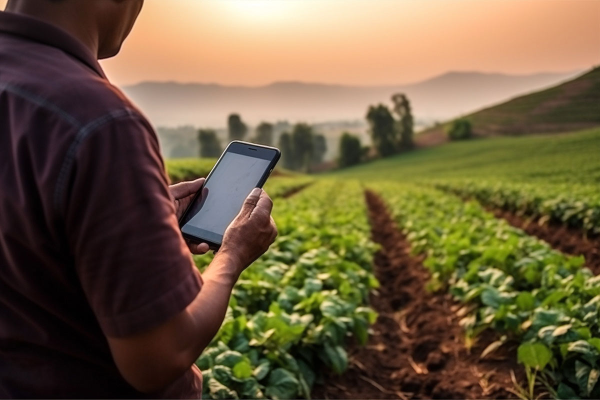A mobile phone application initially developed by CGIAR’s International Potato Center (CIP) in partnership with RESONANZ Group GmbH is improving agricultural activities in Kenya by providing vital data for tracking what, where and why crops are grown, supporting breeding programs and seed systems.
Dubbed VarScout, the cloud- and mobile-phone-based application is transforming how crop varietal data is collected and used further enabling farmers, extension agents, researchers, and policymakers to record, store, monitor, and visualize crop varietal information in real time.
The data can enhance, at one and the same time, smart crop decisions by farmers, productive breeding work by scientists, judicious agricultural policies by governments, and sound investments by funding agencies.
This comes at a time many smallholder crop farmers in Kenya and other developing countries do not know the specific variety of the crop they are planting (and growing, harvesting, selling, and consuming).
This is because the seed certification and regulatory systems of poorer countries tend to be weak, with much of the crop seed marketed unlabeled and/or poorly documented.
It is also due to underfunded or understaffed agricultural extension systems of developing countries thus many farmers are not given sufficient training in the differences among varieties, including their advantages and optimal growing conditions.
As a result, most small-scale farmers continue to rely on informal seed systems and with high cost of improved seed varieties, the growers save their seed from previous harvests or exchange seed with their neighbors, leading to local crossbreeding and the renaming of local varieties.
This leads to little understanding of who is growing what crop variety and where and why, or how, where and why new varieties are being diffused, including climate-smart technologies, which stops farmers’ ability to fully realize any genetic gains in their cropping systems.
Real-time access to information
However, by building public databases mapping the locations of different crop varieties, VarScout gives farmers, extension agents, agripreneurs, marketers, crop breeders, policymakers and funders real-time access to information that can improve seed selection, quality, and systems, increasing overall farm productivity and resilience in the face of climate and other changes.
The data collected through VarScout can facilitate much, such as connections among farmers, marketers and seed producers that bring about more efficient value chain operations.
Enhancing decision making
VarScout application which can be downloaded onto a smart phone allows users to collect reliable, GPS-specific data on where different varieties of staple crops are being grown and upload that information to a public database.
The map is crucial for optimizing crop breeding programs, enhancing seed systems, and improving smallholder farm productivity.
By knowing which crop varieties are being grown where, researchers can better understand farmer crop preferences, identify gaps in the seed supply, and address urgent needs of crop farmers facing a changing climate.
Incorporating other crops
Initially, VarScout focused on potato and sweetpotato varieties, but its success has encouraged expansion to include common beans, maize, and even bananas.
The app has already made it possible for significant discoveries, such as the identification of the ‘Steven’ potato variety, which was popular among farmers but unregistered.
Insights like these are critical for preserving agrobiodiversity, adapting to climate change, and uncovering hidden gems that might otherwise be overlooked.








